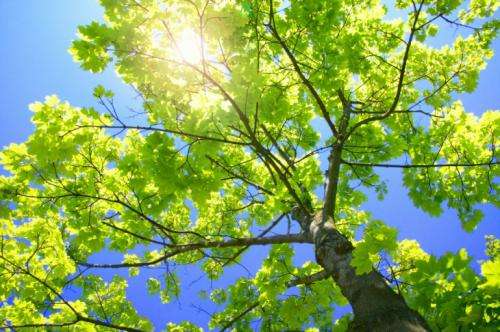New study investigates 'sunshine' and the immune system.
Aberdeen researchers are launching a new study to test two methods that may counter possible health risks of not getting enough exposure to the sun during the winter months.
In winter, people living far from the equator don't receive the beneficial UVB rays needed to make vitamin D in their bodies, because of the angle of the sun.
It is known that vitamin D is needed for healthy bones, but some studies have also suggested links between vitamin D deficiency and immune mediated diseases such as multiple sclerosis. The north of Scotland has a high prevalence of MS and a recent study found that the Orkney Islands have the highest rate of the disease in the world. Other countries at northerly latitude such as Canada also have a high MS prevalence.
Now University of Aberdeen researchers are looking for healthy volunteers to help them examine the effects of vitamin D supplements and also artificial UVB light - mimicking sunlight - on the body's immune system.
Two years ago the Aberdeen team showed a link between sunlight, vitamin D and cells in the body, known as regulatory T cells which play a vital role in the immune system, keeping it in check and preventing damaging responses.
This new study - which follows up that earlier research - aims to recruit 50 healthy volunteers over the age of 16; who are not taking vitamin D; are not allergic to the sun and are able to travel to Aberdeen's Foresterhill campus. They will be given either vitamin D supplements or have a series of UVB therapy treatments currently used to treat dermatology patients at Aberdeen Royal Infirmary.
Professor Anthony Ormerod, Professor of Dermatology at the University of Aberdeen, said: "The problem with being so far north of the equator is the lack of sunlight and there is a seasonal incidence with certain diseases which increases the further you are from the equator.
"Sunlight is our main source of vitamin D but the further you are from the equator the less sun exposure you get. This is a particular problem during winter because the useful UVB rays are filtered out and don't reach us. Unless we take a winter sunshine holiday or vitamin D supplements, we are reliant on the stores of vitamin D that has been built up by the body during the rest of the year."
Professor Helen Macdonald, Professor of Nutrition and Musculoskeletal Health at the University of Aberdeen, said: "We want to see whether giving volunteers vitamin D or artificial UVB light can counter the problem of lack of sunlight and improve our health. Vitamin D is important for bones and vitamin D deficiency has also been linked with cancer, cardiovascular disease and autoimmune diseases such as MS. We will be looking to see whether artificial sunlight or vitamin tablets will keep our immune systems in check.
"Volunteers will be randomised to get either vitamin D tablets containing the same levels that you get in vitamins you buy over-the-counter or they will be given light therapy. Those getting UVB will be given doses that are the same level you would get on a sunny day in Aberdeen during the summer. Blood samples will also be taken to enable us to see what is happening in the body."
Professor Ormerod added: "We're hoping our study will point us towards a way in which we could help improve the health of the community. It's about looking at preventative medicine to help with the disadvantage of not getting enough sun during the winter months."
Provided by University of Aberdeen





















